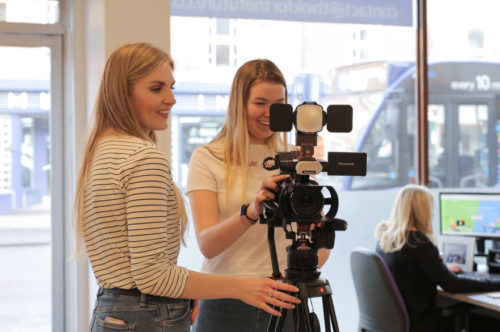Why study midwifery?
Midwives are autonomous practitioners providing care and support to women and their families during pregnancy, birth and the early postnatal period.
Working as part of a multidisciplinary professional team, midwives practise in birth units, communities and hospitals, supporting women to have a positive experience of childbirth.
This dynamic, demanding and privileged role carries great responsibility but is incredibly rewarding.
A £5,000 per year training grant is available for students. Further information is available on the NHS Business Services website.
Why UWE Bristol?
BSc(Hons) Midwifery is accredited by the Nursing and Midwifery Council (NMC), which means you can register as a midwife with them when you graduate.
With close input from practice partners and maternity service users, the course offers an authentic, woman-centred learning experience and gives you the grounding you need to practise midwifery confidently, compassionately and to the highest standard.
Cement your understanding of the midwife’s role and learn about good midwifery practice. Develop the critical thinking and leadership skills to evaluate evidence, and help move midwifery forward.
Based at our Glenside campus UWE Bristol’s home of health and social care you’ll develop strong interpersonal and inter-professional skills to work in a team with women, their families and healthcare professionals from other disciplines.
Work with enthusiastic academics who’ve all practised as midwives themselves.
The course has a strong practical focus and you’ll spend around half of your time learning on clinical placements, supported by midwifery mentors.
Engage with service users, practising midwives, researchers and other healthcare professionals in placements, class and online.
Practise and hone your skills with medical students in hospital settings, and in our purpose-built Simulation Suite and Birth Room.
Where can it take me?
Midwives are in demand across the UK. Your skills will be sought after in both hospital and community-based roles.
You could progress to become a specialist or consultant midwifery practitioner, clinical midwifery manager, lecturer or researcher in midwifery.
Zobacz więcej na stronie uniwersytetu >>







